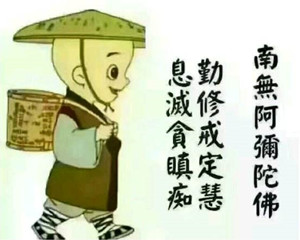(单词翻译:单击)
《菜根谭》是明朝还初道人洪应明收集编著的一部论述修养、人生、处世、出世的语录集。 其文字简炼明隽,兼采雅俗。似语录,而有语录所没有的趣味;似随笔,而有随笔所不易及的整饬;似训诫,而有训诫所缺乏的亲切醒豁。

《菜根谭》(一念贪私、坏了一生)
人只一念私贪,便销刚为柔、塞智为昏、变恩为惨、染洁为污,坏了一生人品。故古人以不贪为宝,所以度越一世。
Once greed and selfishness dominate a man’s mind, his previously steel-like nature will become soft and weak; his intelligence will become blocked and dulled; his benevolent nature will become vicious; his pure spirit will become muddied; and the virtue he has accumulated over a lifetime will become dissipated. That is why the ancients regarded “Be not covetous” as a precious percept for self-improvement. It was thus that they managed to overcome greed for material things and enjoyed peace and security throughout their lives.
(保罗·怀特 译)
So long as a slight selfish desire emerges into a man’s mind, his uprightness will become weakened and yielding; his intelligence dulled and invalid; his benevolent nature degenerated and cruel; his pure aspiration sullied and unworthy—and as a result, the virtue he has accumulated over lifetime will become totally spoiled. That is why the ancients took “Not be covetous” as the discipline to guide themselves aright in surmounting material desires all their lives.
(周文标 译)
A momentary weakness of avarice and selfishness will turn uprightness into cowardice, wisdom into stupidity, benevolence into cruelty, and cleanness into dirtiness, thus spoiling one’s moral character for life. Hence the ancients regarded as invaluable the virtue of being free from avarice, something that makes one spend one’s life in peace.
(蒋坚松 译)
更多精品翻译素材,敬请关注可可英语。


